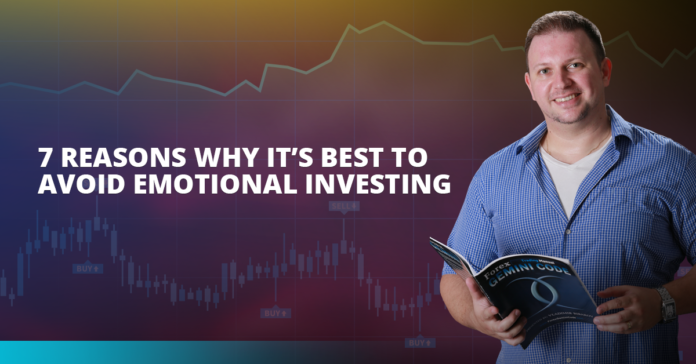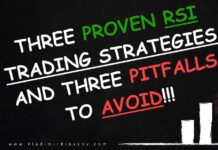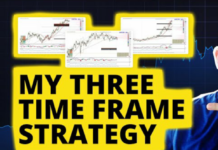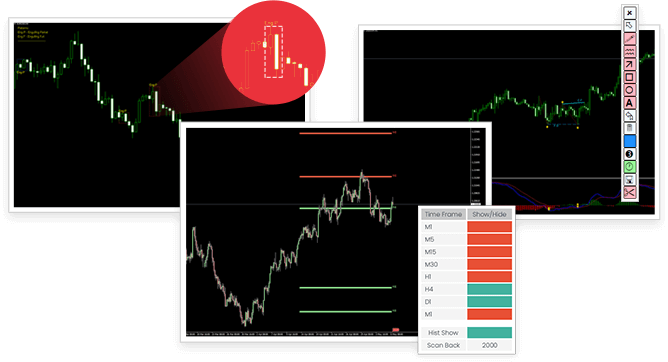
By: Charles Leworthy
It’s hard to deny that emotions play a major role in successful trades. The more experience you gain, the more confidence you in your instincts.
But you shouldn’t allow all your investments to be guided by emotions. The Forex market can be unpredictable at times, but there are still clear rules set in place. Here are the main reasons why it’s best to avoid emotional investing.
1. It Makes You Impatient
Emotional investing can lead to a whole host of problems, the main among them being that you get impatient. Successful investments are all about timing, but when you have strong feelings for a particular opportunity, biding your time and waiting for the right one can feel like torture.
It’s especially important to avoid letting your emotions guide you when you are a beginner. You might want to skip through Binary Trading 101 and just jump straight in. But without a clear understanding of the basics, you are liable to commit some pretty serious errors.
Some binary options trading types encourage acting quickly. The 60-second trade, which is quite popular, requires you to place the Call/Put order with very little time to assess the situation.
But experienced traders take a lot of time to study the market and prepare thoroughly, so that when the time comes to make that split second decision they know exactly what they are doing.
2. It Makes You Arrogant
Naturally, you should be proud of your success and insights when they work out. But placing your feelings ahead of your rational thinking can quickly lead to arrogance. And that can be your worst enemy.
It’s not moralizing advice about the virtues of remaining humble. Arrogance, when it comes to financial investments, can genuinely have some very definite downsides. It blinds you to risk and can make you believe you cannot fail. And that’s going to lead to increasingly risky investments with less planning. New traders are particularly prone to this, alongside other common mistakes.
3. Emotions Skew the Numbers
Numbers are an investor’s best friend without a doubt. Numbers give you the hard facts about market trends, and ultimately they indicate when and what you should do. So, you might be tempted to think that, as long as you have the right data, you’re all set.
But numbers and stats must be interpreted for them to become valuable. Getting emotionally invested in a deal can change the way you look at the data you have. The term for this is confirmation bias.
No matter what the numbers indicate, you’ll look at them in order to find evidence for the decision you’ve already made. And in some cases, this can make you ignore clear warning signs.
4. Makes You Throw Good Money After a Bad Investment
The financial markets can often be unpredictable. No matter how good or experienced you are, you will occasionally lose money.
Maybe you’ve invested in stock from a promising start up that looked good on paper but never really managed to get off the ground. Or a well-respected company’s reputation took a slight nosedive, making their assets less valuable.
It can also happen with high risk, high reward investment strategies such as the straddle strategy. Bidding on value going up even when it seems to be going down can yield impressive results, especially if most of the investors are not willing to take the risk.
But this strategy only works if there is a clear indication that the value will make sharp turn.
You’re going to try to make it work, despite the evidence, because there is something more at stake than making money. You might feel like you’ve wasted your investment if you don’t pursue it further.
Because it’s going to be very difficult to accept that you’ve made a mistake. This will lead to a downward spiral of failed investments. Luckily, you can avoid the sunk cost fallacy, as this situation is called in expert circles.
5. You Get Emotionally Invested in Every Transaction
Image source: DepositPhotos
It goes without saying that your financial investments are going to have an impact on your mood and feelings. Obviously, you cannot suppress these natural reactions nor should you.
But when you get emotionally attached to trades and opportunities, all of these feelings are going to be exacerbated. Strong emotions can severely affect your ability to stay rational and see every new opportunity for what it is.
Plus, if you ever find yourself losing money, and you will at some point, it’s going to hurt much harder than if you just maintained a safe emotional distance.
6. It Can End Up-Lowering Your Self-Esteem
Emotional investing can really take a toll on your self-esteem during those rough periods. And while we’ve said that being arrogant is not good for business when it comes to financial trades, lowering your self-esteem can be even worse. A low self-esteem can affect every aspect of your work and even your life.
Confidence is essential in this field of work. As you start developing your skills and gaining more and more experience, you will be able to spot opportunities more easily. But you must able to trust yourself. Otherwise, your experience will be wasted. Without self-confidence, you could quickly find yourself stuck in a rut.
7. Develop Risk Aversion
If you truly want to make a profit, being afraid to take risks is not an option. Emotional investing can quickly lead to that if you experience few losses you had high hopes for.
To be clear, being cautious is a quality worth cultivating when it comes to seizing investment opportunities. The difference is that caution implies looking at the situation from all possible angles, calculating the risk-reward factor, and deciding if it’s worth the effort. It does not mean avoiding risks altogether. Some of the riskiest investments can also yield the largest profits. Caution helps you avoid pointless risk-taking.
Risk aversion, however, means you will no longer take risks of any kind. At that point, you might as well give up trading. Because there will always be some element of risk involved. That’s what makes it so interesting and exciting.
Your feelings about a situation and your instincts can make the difference between a win and a failure. The more experience you gain, the more reliable intuitions can become. However, you should always try to put some distance between your work and your emotions, especially in such an unpredictable field.























thank you very much for such information sir you really helping us as young new traders ,thank you.
Really helpful. thanks.
Amazing article
Wow…useful tips really!